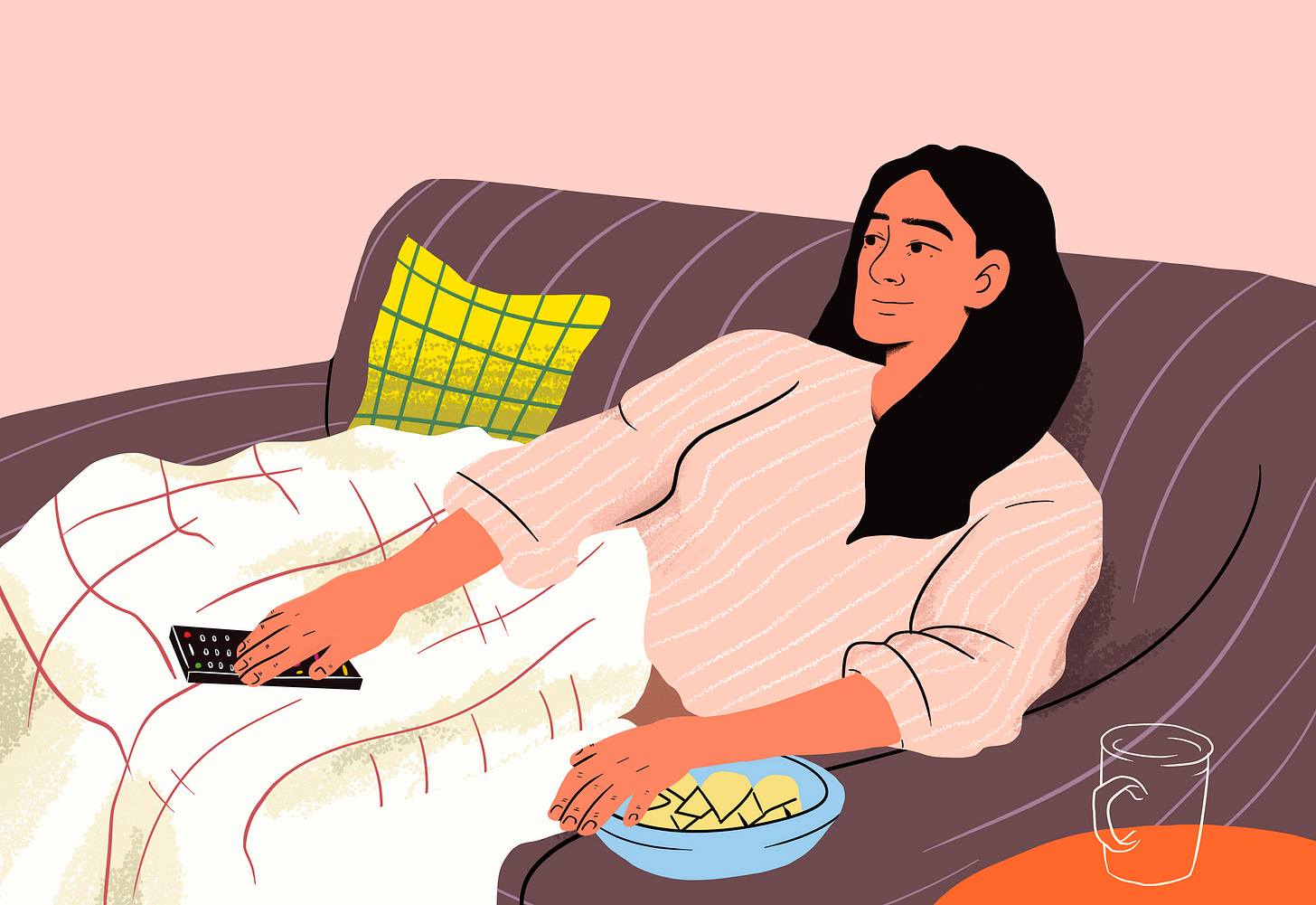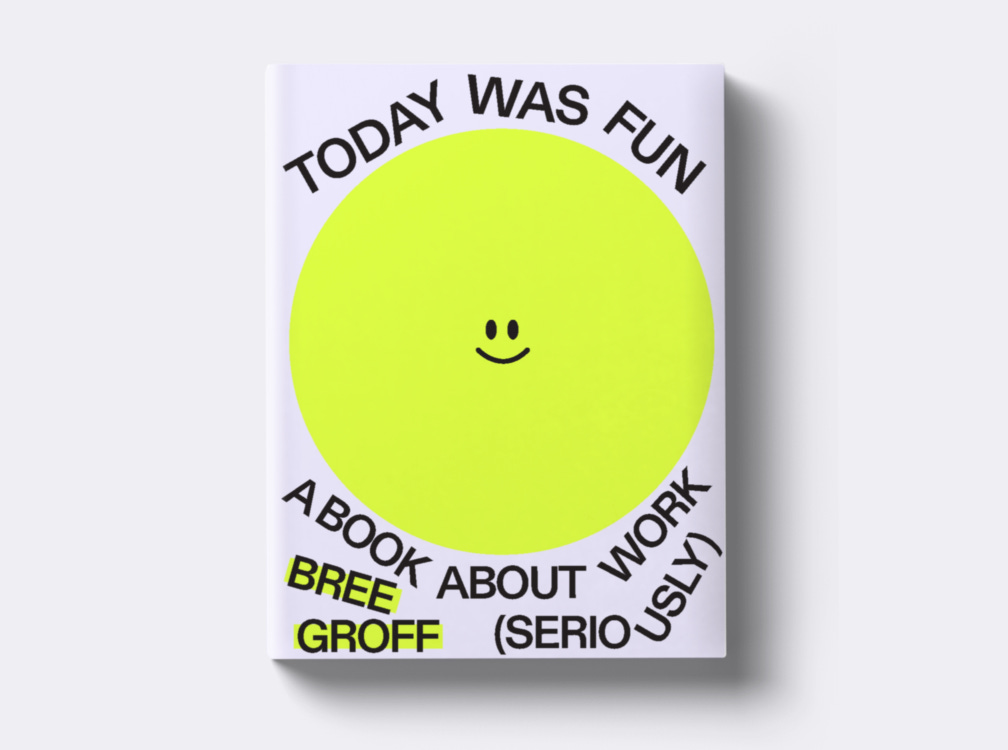The "Most Days" theory
(you've probably heard about 'Let Them' — this one is better, imo)
Right now I am in Spain on holiday with my family and so I thought I’d schedule a post in advance for you to read while I’m away, from guest writer
. She is the author of Today Was Fun: A Book about Work and spent her career consulting at companies including Microsoft, Calvin Klein, Adobe, Google and Etsy on workplace culture and change. I liked her pitch email and requested a digital copy of the book. I then saw that Seth Godin was also a fan of the book (an excellent stamp of approval imo). I was both intrigued and impressed by Bree’s work—and wanted to know more.[I receive a lot of pitches for guest posts out of the blue—and very sadly, I can’t get to them all, and I rarely do them. Occasionally though, I see an idea and instantly love it.]
In Bree’s guest article below, she shares her “Most Days” theory. Essentially, she is telling us how she learned that you don’t have to be doing well all the time, you just need to be trying your best most days. In this toxic productivity culture, where we’re supposed to be doing everything everywhere all at once, it sounded like music to my ears—a way to take the pressure off.
Bree’s ‘Most Days’ concept can also be a great way to notice the things that aren’t working. In my early twenties, I remember going back and forth about whether I should quit my job and look for something new. Every now and then, I’d have a really good day, which would convince me to stay a little longer. But then, I did a thing: I started putting a red dot in my journal on the days I felt certain I wanted to leave. After three months, most days had a red dot. It helped me make a decision. Because what we do and how we feel most days is what truly matters. I’ll let Bree explain more below in her own words.
Today Was Fun (UK version) is out next month, and out in US this week.
The “Most Days” theory
By Bree Groff
When I was in high school, around 16 years old, I handwrote a note to myself: “You can keep on going long after you can’t” and pinned it above my desk.
It was a small note that I penned in blue marker. I had cut the paper to perfectly hug the edges of the writing. When it was midnight and I still had more homework, I would look up at my reminder and start drinking from a deeper well.
The odd thing about this intense-workaholic mindset is that it wasn’t born of parental pressure or fear of failure. It was some combination of deep commitment (if I was assigned homework, I did it!) and a genuine enjoyment of learning and success (I did a thing!). I wasn’t paying attention to the costs (the sleep deprivation, the lack of leisure, the time pressure) because the results were compelling. The note spoke to me in times of need: I could technically go on. And, truth be told, this mindset of grit and endurance has served me well.
I made it through the late nights and into an Ivy League university. I pushed hard at work and became a department chair at a school by 28 and the CEO of a consultancy by 32. Even when I was dating I told myself, “It’s a numbers game, Bree! Just keep churning and you’ll find your match.” I had back-to-back dates, and then met my now husband of 12 years. My inner achiever has some pretty good ammunition when I tried to change gears and tell her “it’s okay not to do it all.” She would press back, like a little gremlin on my shoulder: “But you know you can do more. Pushing has made you successful!”
Then, the arc of my story began to wane. Perhaps with the birth of my daughter, the death of my mother, or impending mid-life, my ambition didn’t fade exactly, but other values certainly grew. I decided I wanted to live a life of enoughness. It was in this transition that I came up with the “Most things, most days” theory.
Let me explain. It’s a gentle theory.
It’s the theory that we derive enormous benefit from the habits we practice most days. We can lower the benchmark of success. For example, most days I wake up early enough to cook my daughter a lovely breakfast. On the other days? She grabs a banana and life goes on. That sort of thing. This is the radical concept I’ve come to adopt: I get to decide what “enough” is.
The “Most Days” theory has given me so much more ease than my 16-year-old self could have imagined. I feel joy when I wake up slowly, instead of cooking myself a full-on breakfast, I savour those moments in bed with coffee and a pastry instead. I can restart healthy habits with hope and not shame. I don’t punish myself for ‘slipping up’. Instead of feeling bad that I haven’t exercised as much as I wanted, I begin again on Monday. Most days, I’m doing just fine.
There’s a Stoic concept of “suffering twice.” The idea refers to unnecessary anticipation and worry, or as Seneca says: “We suffer more in imagination than in reality.” This feels relevant to how we judge ourselves retrospectively. We make things worse by re-playing it in our heads. Sure, there’s a basic minimum of doing enough we all need to stay employed and alive, but most of us are adding unnecessary suffering but holding ourselves to impossible standards.
Let’s say you didn’t do all 10 things on your list today. You get to decide whether you feel bad about it, or whether you actually did plenty and are now going to enjoy the shit out of your takeout burrito and some light-hearted reality TV. Being generous and gentle with ourselves isn’t just nice (which it is), it’s also logical. You did what you did. “Most days” you’ve shown up, and that is enough.
Instead of doing and being all things all days, my life looks like this:
Keep reading with a 7-day free trial
Subscribe to The Hyphen by Emma Gannon to keep reading this post and get 7 days of free access to the full post archives.






